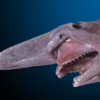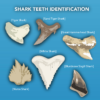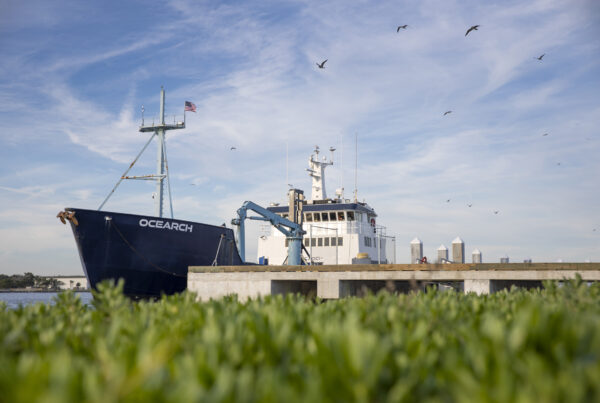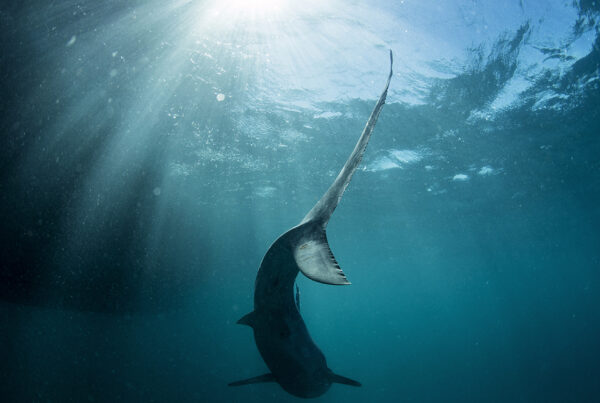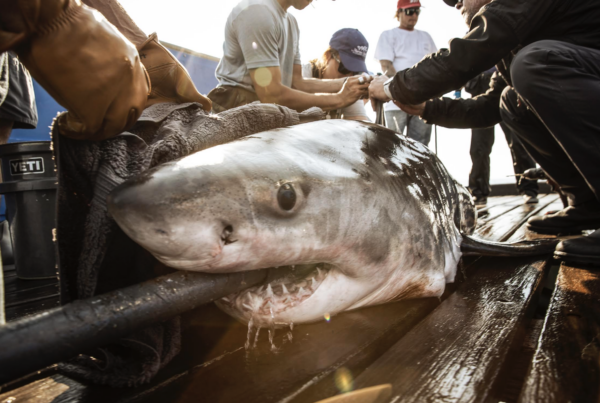White sharks are southbound and OCEARCH is headed with them. OCEARCH is embarking on its 44th ocean research expedition to further their knowledge on these animals as they migrate to the southeast of the United States for their winter residency.
Alongside 45 collaborators from 30 research institutions, the organization will collect data to support 24 science projects that will help solve, for the first time, the life history puzzle of the white shark in the Western North Atlantic Ocean.
Over the past seven years OCEARCH has come to this region annually to learn more about white sharks during their overwintering, but this will be the team’s first time in the region during the November and December timeframe, giving scientists the opportunity to study these animals at the beginning of their winter residency.
“This is our first expedition trying to sample these white sharks as they arrive in their overwintering habitat period. It will allow us to understand the physiological makeup of a white shark in this region at this time, filling in the gaps to understanding their lives across their entire migratory path,” stated OCEARCH Founder and Expedition Leader Chris Fischer.
During Expedition Southbound, OCEARCH’s goal is to collect important biological samples such as blood work and muscle tissue that are critical for understanding what white sharks are doing in a particular region during that season and what drivers, like prey, might be drawing them to the area. Samples from mature sharks will also help scientists fill gaps in hormone data, helping create a complete profile of how hormone levels change throughout the entire year and understanding what levels indicate an animal is reproductively active. In addition, OCEARCH hopes to apply tags to the white sharks they study, allowing the team to track the animal for years to come and increase understanding of what factors affect these animals’ movements across different seasons.
“Animals sampled during this time will provide valuable information about prey preference, foraging strategies, habitat use and preferred oceanographic features,” explains OCEARCH Chief Veterinarian Dr. Harley Newton.
The extensive range of habitat that white sharks use for winter residency expands from Cape Hatteras, North Carolina to as far south as the Florida Keys, Cuba, and into the Gulf of Mexico. This makes the area of interest very large, and coupled with the tumultuous weather this region faces this time of year, will make this expedition one of OCEARCH’s most challenging.
OCEARCH’s Western North Atlantic White Shark Study is the most comprehensive study of white sharks in the world and includes a full health assessment of each shark, microbiological studies, movement, temperature and depth studies through the use of three different tags, and more. With 84 sharks studied in the Western North Atlantic ocean, OCEARCH is in the last stages of their sample collection in this region. The team has just 16 sharks left to reach their goal of 100 sharks sampled and tagged in the Western North Atlantic.
“At this point in our Western North Atlantic White Shark Study, it’s all about filling in the remaining, critical gaps. Expedition Southbound takes us to a place and time in the Western North Atlantic’s white shark range where we need to know what the sharks are eating, what environmental threats they’re facing, and, after we tag them, where they return to next summer. The work will be exciting but challenging, and each and every shark our science team is able to study will be pure gold,” explains OCEARCH Chief Scientist Dr. Bob Hueter.
Expedition Southbound will depart from Brunswick, GA on November 28 before a final docking planned back in Brunswick on December 14. Explore alongside the team in real time on social media @OCEARCH.
Additional Expedition Southbound materials, including photo and video assets available for use by the press can be found here.




